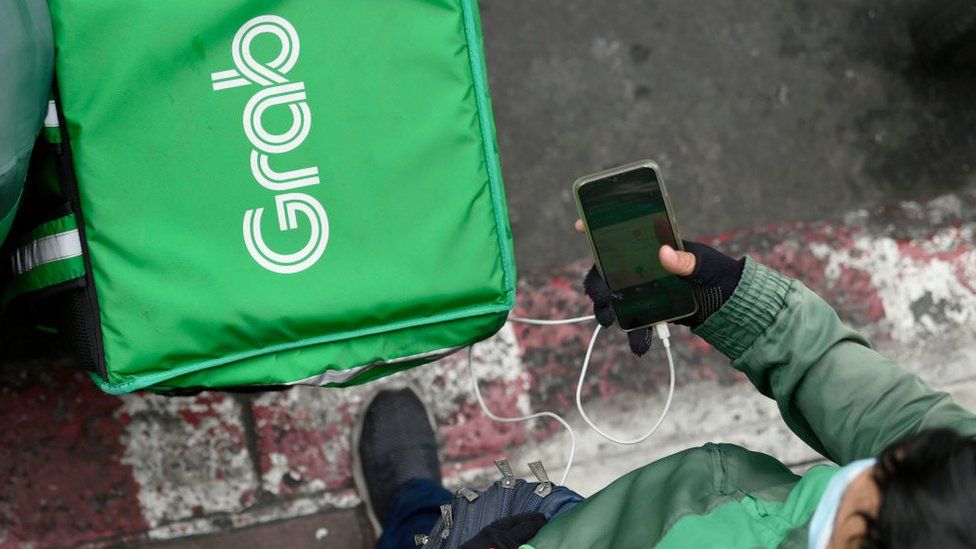Articles

CPPR TOWNHALL on Creating Streets4People
December 8, 2021
Lack of able leadership stands in way of development projects in Kochi
December 9, 2021How an Intelligent Local Tech-Ecosystem Can Overcome Developmental Constraints: A Grab Super App Case Study

In Brief: India’s developmental goals and its global warming related developmental constraints can both be met through a citizen-centric tech ecosystem approach, along the lines of the hugely successful Grab super app.
Despite being at the forefront of the technological revolution, big-tech companies are for the most part entrenched in 19th century notions of capitalism, seeking to profit from rather than profit with consumers.
Grab, a multi-service company, has been successfully charting a new course of business action since its inception in 2012. The company’s moniker of “super app’ arose from the diverse services they support including cab rides, deliveries, payments and mapping [1,2].
The Asia-focused company’s foray into numerous consumer services arose not from the desire to get a finger into every possible tech pie but from the necessity to accommodate users of low-end smartphones who make up much of the Asian population.
This single app does away with the need for installations of multiple applications with their additional memory and battery demands. Note that this form of device optimization reduces resource consumption and related climate costs involved in the manufacture of newer and larger smartphones. This would be an example of an intelligent response to a perceived shortage.
The COVID pandemic saw a significant decrease in the cab service market. However, thanks to its preexisting user oriented design, Grab was able to make a smooth transition to deliveries, the need for which rose during this period.
Cab drivers were recruited to make deliveries, with schedules optimized to take advantage of particular distributions of items demands. The rough complementarity of peak hours for food deliveries (mealtimes), rides (mornings and evenings) and groceries (scattered throughout the day) allowed drivers to remain in employment and Grab to remain in business.
Grab even worked with local banks to allow their drivers to pay for otherwise expensive insurance on a per-ride basis, about 10 cents for each ride.
Grab’s in-house mapping system was developed to address the particular structure of streets in Asian countries, covering narrow alleyways and shortcuts based on local knowledge, which do not feature in typical GPS systems. This allowed the inclusion of bike riders for smaller and more efficient deliveries.
The business ecology of Grab extends to indirect support services necessary for successful deployment of its primary services. Digital literacy and tech up-skilling clinics for senior citizens in Singapore, new and more profitable agricultural markets for farmers in Vietnam and COVID inoculation camps for drivers in Indonesia are a few examples of Grab’s nation building efforts undertaken at the request of the governments of these countries.
Although Grab’s market has been relatively local, its tech team is a global one, allowing its business ecosystem to expand. Mapping expertise recruited from Romania, machine learning from Washington in the U.S. and finance from Bangalore, enabled Grab to meet its talent requirements.
There is a huge opportunity for upcoming Indian tech companies to design and develop for the unique Indian landscape and the particular needs of users in India, to offer economical alternatives to conventional tech companies abroad and also retain their leverage with respect difficult state and private tech players.
Grab’s contextually intelligent business model enabled it to buy out the deep-pocketed Uber in South East Asia in 2018, emphasizing that huge funds are neither necessary for, nor do guarantee success [3].
An intelligent native alternative to conventional, single use, unrepairable, unsustainable resource guzzling big-tech would serve not only developing nations but also the developed world, given the rapidly deteriorating climate conditions worldwide.
Make in India efforts would be more meaningful if they were not limited by a “think like western big tech companies do” approach. If India is to play a truly leading role in the tech revolution it must begin by adopting an independent tech-mindset.
Indian tech start-ups ought to be encouraged to create highly resource efficient AI-tech solutions that are optimized for local conditions to ensure that tech-development does not stall under global warming related developmental constraints that India is being urged to adopt.
Open Question
The early months of the COVID pandemic saw a lot of jugaad ingenuity in action among the people of India such as auto-rickshaws being repurposed to deliver vegetables from local markets to residential areas. Could such “multi-purposing” be designed into civic services and deployed in an organized manner, as a way to build resilience against disasters such as epidemics, shortages and floods?
References
- https://www.grab.com/sg/press/others/grab-go-public-in-partnership-with-altimeter/
- https://www.bbc.com/news/business-56967633
- https://www.researchgate.net/publication/352520989_What_Can_We_Learn_from_Business_Innovation_Failure_of_Uber_in_Southeast_Asian_Market
Dr Monika Krishan's academic background includes a Master’s in Electrical Engineering from the Indian Institute of Science, Bangalore, India and a Ph.D. in Cognitive Psychology from Rutgers University, New Jersey, USA. Her research interests include image processing, psychovisual perception of textures, perception of animacy, goal based inference, perception of uncertainty and invariance detection in visual and non-visual domains.
Dr Krishan's areas of study also include the impact of artificial intelligence devices on human cognition from the developmental stages of the human brain, through adulthood, all the way through the aging process, and the resulting impact on the socio-cognitive health of society. She has worked on several projects on the cognitive aspects of the use and misuse of technology in social and antisocial contexts at SERC, IISc as well as the development of interactive graphics for Magnetic Resonance Imaging systems at Siemens.

